#Wiktionary says it is
Note
Do you think one could attain decent-ish ability to read Japanese just by studying kanji? Specifically asking because the kanji learnin' service "wanikani" is the single Japanese resource that works best with my brain, but then there are separate resources for grammar and vocab and and and.....
You will get REAAAALLLLLYYY far knowing only the kanji but you're going to have to know hiragana and katakana at some point too. Tofugu, the company that did Wanikani, has two mnemonics-based guides for the kana that are basically Wanikani Lite. They're how I learned the kana and I swear by them.
Here's hiragana: https://www.tofugu.com/japanese/learn-hiragana/
And katakana: https://www.tofugu.com/japanese/learn-katakana/
Hiragana are especially vital to learning kanji; you won't be able to use 99% of Japanese-English dictionaries without them. BUT they're pretty easy and the rules for using them are consistent. You won't have to remember any irregular exceptions for any of them.
I haven't tried it yet, but I've heard really good things about the Crystal Hunters manga series as a fun/low stress way to learning Japanese vocab and grammar. It eases the reader into new concepts and then repeats them throughout the chapter so you remember them. There are free vocab and study guides/lists for each chapter too. Might be worth checking out once you get some kanji and the kana under your belt? The first book is also free.
Official site: https://crystalhuntersmanga.com/
Good luck!!
#asks#Japanese takes like a bajillion hours forever to learn because of the 2200+ kanji lol...........#But it's sooooo consistent grammatically and with the spelling. I love it#Kinda spoiled me tbh. I look at English now and I'm like#'Why can't you be more like this. Why are you such a mess. Get your act together'#And then there's Korean's hangul writing system. It's SO BEAUTIFUL. Actual marvel of linguist engineering#The Japanese lexicon is also a lot smaller than English's too. Which is both a blessing and a curse#Less words = quicker to learn. BUUUUUTTTT less words that mesh well with English. Translation is hard!!!#Holy fuck. Ok so Wikipedia says that the English language has 755`865 words as recorded by Wiktionary#and Japanese has 500`000 according to Nihon Kokugo Daijiten#BUT THEN KOREAN. ACCORDING TO ONLINE DICTIONARY URIMALSAEM (open source dictionary) HAS 1`149`538 WORDS#The biggest lexicon is Tamil's with 1`516`952 unique headwords as recorded by online dictionary Sorkuvai#That's absolutely nuts#I got massively distracted. Enjoy my word vomit tags
37 notes
·
View notes
Text
For a while, I've been reading books and noting down word-usages that might be useful for Wiktionary. Most of them just go to exemplify already-listed words and sentences, but some of them necessitate writing new ones. Recently I finished reading Leslie Feinberg's queer history column in Worker's World, and, for no particular reason, I thought I'd share some of the new definitions I wrote.
"under the bootheel of"

"Amazonian"

"good coin"

"gaybait"

"vag-lewd"

"hurricane"

"Mexican@"

"home"

Why did I do “gay-bait” but not “fascist-bait” or “lesbian-bait”? For one, it’s the original: the other two are derived from it. And for another, Wiktionary already had other senses of gaybait. Also, it's more likely to be written as one word, which qualifies it better for inclusion.
13 notes
·
View notes
Text
and now for speckled band 2/3!
i think that "i cannot think" is, like, an old-fashioned way of saying "i don't know", but it's very funny. adopting this into my everyday vocabulary
oh, i think i know why the people on the lawn are relevant to the story, if my foreknowledge is correct
this week in words that have gained a significantly more risqué meaning over the past century
this description... is really something. seared with wrinkles. bile-shot eyes. also, watson is once again comparing people to birds
uh-oh!
i looked up the meaning of jack-in-office, and i'm very sad that it has nothing to do with a jack-in-the-box
...damn he just unbent that fire poker huh? guess he wasn't kidding about being a boxing champion
"two curving wings, like the claws of a crab" is the PERFECT description of a building ever
more very familiar plot devices! hmm...
poor stoner, but at least we know she lives? (only for another few years, but still)
#star says#letters from watson#sherlock holmes#is foreknowledge a word i literally just made it up on the spot because i couldn't figure out how to word it#i checked and wiktionary says it is hooray#but i might be using it wrong
19 notes
·
View notes
Text
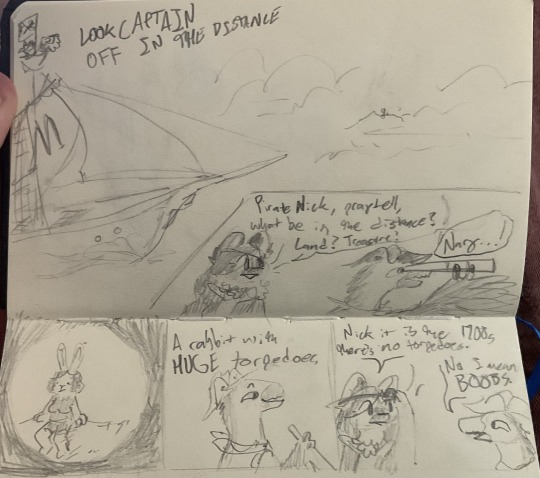
Joke about slang, featuring my fursonas Meni and Nick, plus the tip of my thumb. Based off of adventures in pressing the random character button on the artfight website.
#art or somethinf#i was gonna have nick say the rabbit has a huge rack rather than torpedoes#but i found myself on the wiktionary thesaurus page for breasts#torpedoes is a particularly amusing slang term i found#and it works for a bit of.. misunderstanding humor!
3 notes
·
View notes
Text
amo aprender o idioma do meu namorado. é uma coisa perfeita por uma linguista e gosto de dizer palavras que aprendi recentemente porque vejo que ele gosta disso. mas estou estressada porque sei que não sei falar veramente. quero poder falar com a mãe dele mas sei que não posso.
My original, untouched version is under the cut, even though I doubt this version is far from free of mistakes
amo aprender a lingua do meu namorado. é uma coisa perfeita por uma linguista e gosto de falar palavras que aprendì recentemente, por qué gosta a ele. mais tenho stress por qué eu seo que não seo falar veramente. quer puer falar com a mãe dele mais sao que naõ puedo.
#I like doing this thing where I write based on hope and vibes#and then I do a little wiktionary/google of the thing I think are wrong#quite please I knew aprendi even if I wanted an accent on it#I am very far from mastering even the present tense still#as seen in the fact that I didn't know how to say I know/I want/I can haha#but linguists can know random bits of other tenses too as a treat#also my original gosta a ele is SO Italian in my head I'm saying piace a lui </3#anyway yeah this is how it's going could be worse#I'm quite please actually I have to say#português#langblr#snicksnack
5 notes
·
View notes
Text
i am begging podcast voice actors to check a dictionary before saying words their characters would not mispronounce
#first a linguist mispronounces 'grapheme' as 'grAphuhmEE'#now its 'opiliones' as 'opile-ons' (did not catch it the first time even in context) said by an entomologist#Wiktionary is free and often has pronunciation guides#the international phonetic alphabet is an amazing extra toolkit to learn to use in conjunction with wiktionary for pronunciation#ask google translate to say it out loud ffs just Please#personal
0 notes
Text
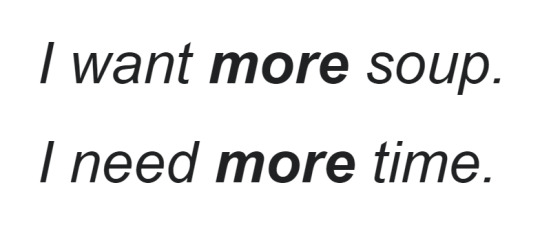
1 note
·
View note
Text
the german word for walk (laufen) can also the german word for run. the min nan word for run (走) is the same as the japanese word for run (走る), which is the same word as the mandarin word for walk (走). the min nan word for walk (行) is the same as the japanese word for go (行く). what was my point again? languages are kinda dumb, I think
#there's dialect maps on wiktionary and 走 行 and 跑 just take turns wearing different hats it's kinda funny#something somethinf heisenberg uncertainty principle we can't measure the particle's precise velocity#ok im just saying words at this point. goodnight#the ho rambles#tnposting
0 notes
Text
another day trying to translate what Joyce is saying on this 123 Rhodes Island comic
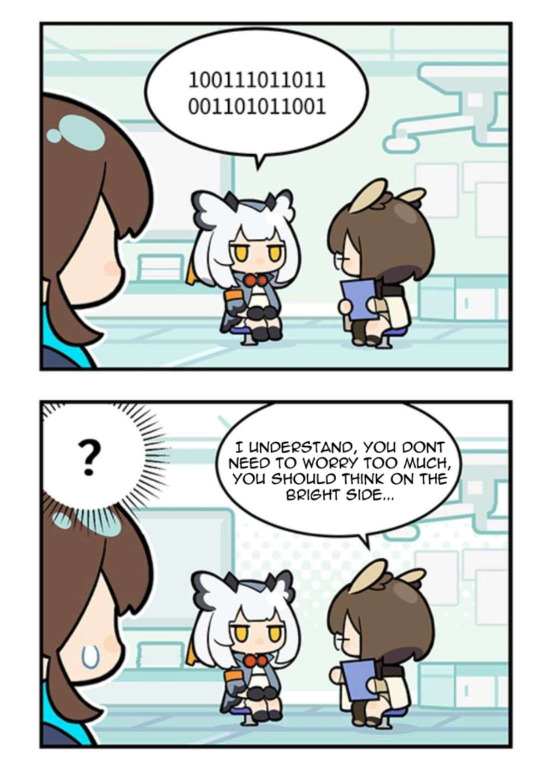
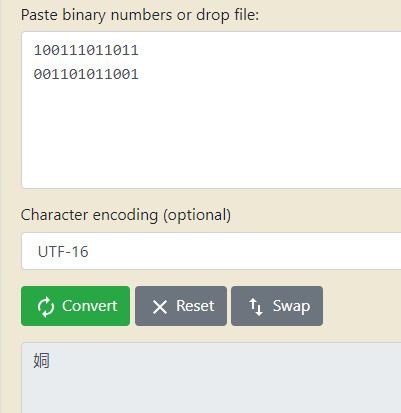
wiktionary gives me these definitions of this symbol (because Deepl is unable to help)

the first makes sense in the context of the comic since Sussuro said that Silence was helping other researchers and listened to their worries, but her reply is weird.
the second, is the alternative form of 女同, which means...

???????
DID SHE JUST CAME OUT TO OLIVIA?
#CAN SOMEONE WHO SPEAKS CHINESE CONFIRM IM LOSING MY SHIT#ive been looking what the CN community said about that and apparently she DOES says something about lesbian#im crying#arknights
809 notes
·
View notes
Text
"Top", "Bottom" Discussion in Unknown ep. 12
The Office Gossip Scene
[Edited on 10th May; changes under clarification headings]
Now that the Unknown has resurrected the conversation about gong shou, let’s talk about it. The what and the why, so to say.
Thank you @1serotonindeficientgirl (whose post inspired mine).
I welcome critiques and corrections. So, please feel free to do so.
Scenes and subtitles
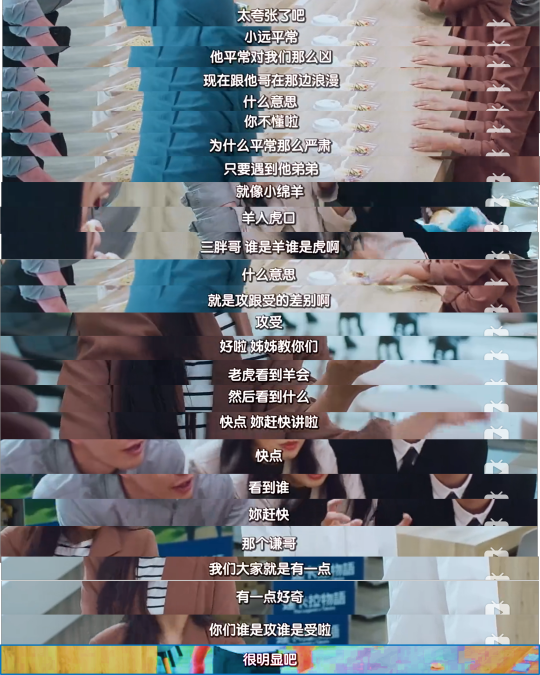
The discussion in the episode starts with Wei Qian’s staff gossiping about his relationship with Wei ZhiYuan. One of the staff members comments that Wei Qian is like a little lamb (小绵羊) when it comes to his little brother:
只要遇到他弟弟
就像小绵羊
Someone replies with the following idiom:
羊入虎口
(Literally: “a sheep enters a tiger's mouth”)
It means to enter a dangerous situation where one will certainly suffer [Source: Wiktionary].
The female employee (who witnessed their kiss) asks San Pang:
三胖哥谁是羊谁是虎啊 - Who is the lamb (羊; sheep) and who is the tiger (虎)?
This has some employees confused and they ask for an explanation. They receive the following reply:
就是攻跟受的差别啊 – [it means] between them, who is gong and who is shou?
One of the staff members repeats the unfamiliar terms:
攻受 – gong shou
and the fu-nu (腐女; fujoshi) offers an explanation:
好啦姊姊教你们 – let this elder sis explain
老虎看到羊会 – the tiger upon seeing the lamb…
Before she can complete her explanation, Wei Qian moves into the scene accompanied by the growl of a big cat. The gossipers disband.
In the end our fu-nu expresses their support for Wei Qian’s relationship with Wei ZhiYuan. Before she runs off, she throws him the question:
你们谁是攻谁是受啦 – between the two of you, who is gong and who is shou?
In the next shot Wei Qian is alone. He flexes his muscles and comments:
很明显吧 - It's obvious, isn't it?
[END OF SCENE]
Everyone at that office seems pretty close. The staff calls Wei “Qian ge” 谦哥 (first name + brother) and not as “Mr. Wei” (as the English subtitles suggests). Looks like Lao Xiong (emphasis on Lao = old) is the only one who clearly disapproves of such gossipmongering.
Notice how the terms gong and shou were translated directly into top and bottom in English subtitles. While that’s technically correct, there’s some nuance missing.
While there are tongzhi (同志;queer) people who use the terms gong and shou, these are not the most popular terms for top and bottom in the tongzhi community. This series specifically uses the terms gong (攻) and shou (受). Why? We’ll get to that in a minute.
In a BL, being shou means that character is the bottom in that particular ship. That character could be top, bottom, versatile or neither in another ship. A character is a bottom (as we use the term in English) only when that character is an absolute shou (sou uke in Japanese). An absolute shou is invariably shou. No matter which ship he becomes part of and no matter who he is paired with, he will be the shou. Similar difference exists between the terms “top” and “gong”.
English subtitles use ‘top’ and ‘bottom’ from the get-go. There is no need to explain what those terms mean. But that’s not the case with gong shou – only 腐 (fu) people (BL fans) really knows what those terms really mean and thus warrants explanation.
Clarification
[Edited. Thank you @abstractelysium and @wen-kexing-apologist for contributing to the conversation.]
As noted in the convo, Wei Qian is pretty ferocious in the office and is only gentle when it comes to Wei ZhiYuan. So, it is normal that gossiping irrespective of topic would end as soon as he arrives. Also, I think Wei Qian didn’t get what gong shou means other than allusion to tiger and lamb. The original language dialogues don’t make it clear that gong and shou means top and bottom (in a ship). [The English subs gives off that impression since gong and shou were simply translated.] Moreover, those terms are danmei literacies that has entered dictionaries but not necessarily public knowledge.
It is like an insider joke for fu-people made possible by Wei Qian’s ignorance. That wouldn’t have worked on Wei ZhiYuan who read danmei while growing up. That wouldn’t have worked if the fu nu (fujoshi) stuck around to explain what that means.
Usually in such conversations in BL, fu-people are shown to be mistaken: they either mess up the ship/dynamic (Love By Chance 1) or the character(s) in the ship deliberately trick them (Counter Attack). It is almost always played out with seme/gong’s approval in BL - not sure if that dynamic between fu-people & seme aka gong character ever appeared in any live-action dynamic. The trigger of this scene is Wei ZhiYuan’s deliberate choice of actions: PDA, kiss in the office right in front of a staff member.
BL literacies
BL is a media genre in itself with different sub-genres, genre conventions and classic works. It sure has a lot of overlap with other genres:
Romance as well as GL – they coevolved. They share mothers and other ancestors.
Queer – Is it really a genre? Even if one were to ignore queer as method in academia, it is still so complex.
Let me quote Taiwanese tongzhi author Chiang-Sheng Kuo:
… what exactly is queer literature? Is it queer literature if queer people like to read it, or is it only queer literature if there are queer characters in the books? Or is it an appendage of the queer movement? If a queer author writes a book without queer characters, does that represent a certain aspect of queer culture?
(You can find the whole interview here.)
Just as danmei (耽美; Chinese BL) has its roots in Japanese BL, so is gong (攻) and shou (受) from seme (攻め) uke (受け).
gong shou aka seme uke dynamics
Mother of BL, Mori Mari, didn’t come up with it, nor did her father Mori Ogai. Both she and her father, among the other dozen tanbi (耽美; same writing as danmei but different readings cause different languages, and different meanings cause different cultures) authors inherited it from authors before them who wrote on contemporaneous and historic Japanese male androphilia.
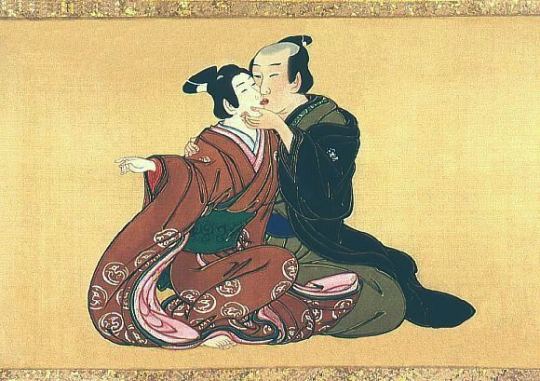
Spring Pastimes. Miyagawa Isshō, c. 1750 | seme uke dynamics in nanshoku pre-dates BL by hundreds of years.
While there is no dearth of riba (versatile) characters in BL, seme uke dynamics is:
a genre specialty. There are similar words in use in GL as well.
an enduring connection to the past of where BL was born.
remnants of a particular model of queerness; an alternative to LGBTQIA+ form of queerness.
What’s there in the scene
There is something hidden in the euphemistic explanation. On the face of it tiger devouring a lamb would be allusion to tiger gong devouring (topping) lamb shou.
But then tiger is a big cat and lamb is a herbivore. Neko (ネコ), the Japanese queer term for “bottom” means cat (etymology is obscure with this one). The term herbivore (草食) when used to describe a man means that man is masculine in a non-hegemonic way. In the series, Wei Qian embodies the hegemonic masculinity while Wei ZhiYuan is a quintessential grass-eater.
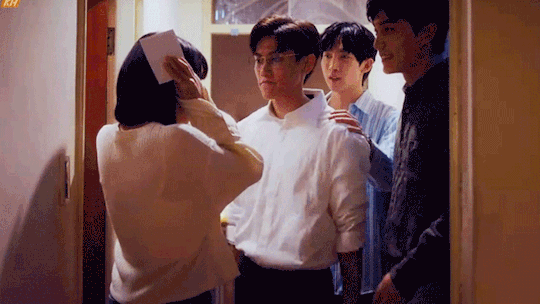
So, the description of lamb being devoured by a tiger would not be associated as simply as with the terms gong and shou especially when it comes from Taiwan which has been historically more connected to Japanese BL than any other BL producers (Sinophone or otherwise).
This connection was highlighted during 魏之远 Wei ZhiYuan's naming scene where Le Ge used the borrowed Japanese possessive particle (の; no).
の = 之 (zhī)
The big cat sound effect for Wei Qian in particular adds to this. Wei Qian’s character is best described as a queen shou.
女王受 Queen shou: A shou who is as proud as a queen, and would devour gong. (source)
Wei Qian and Wei ZhiYuan’s ship is best described by Priest (the author of Da Ge, source novel of Unknown):
经典款毒舌女王和屁颠屁颠的忠犬组合 – paring of a classic, sharp-tongued queen and a tail-wagging loyal dog.
BL literacies & Affective learning
BL kind of has its own language (with words like gong shou), which fans use to share ideas and feelings. This secret language is what academics call ‘literacies.’ BL fans are all in on this and have their own ‘ways of behaving, interacting, valuing, thinking, believing, speaking, and often reading and writing’. Through ‘various visual, conceptual and textual literacies’, BL fans weave ‘an intertextual database of narrative and visual tropes which readers draw upon to interpret BL’. BL literacies is learnt through ‘affective hermeneutics – a set way of gaining knowledge through feelings.’ Audience learn BL literacies from BL works ‘which eventually leads to their active engagement’ with other BL fans. (source; Kristine Michelle L. Santos explains it in the context of Japanese BL but it applies to all BL media irrespective of where it is from.)
That scene in Unknown was set up to familiarize audience with BL literacies – not only those specific words but also the larger practice of imagining character pairing and indulging in that imagination. This is evident from the overall jubilant tone of the scene and the camera work. It is a celebration of moe. That is why we have a character who is not only a fu-nu but also willing to be openly fu-nu in that setting, sharing BL literacies and her colleagues interested to learn.
For other examples, check out Thomas Baudinette’s book Boys Love Media in Thailand: Celebrity, Fans, and Transnational Asian Queer Popular Culture. He has a chapter dedicated to explaining how genre conventions were taught to the early audience of Thai BL through similar scenes.

Why must they do this? Why break the fourth wall like this? To get more people interested in the intricacies of BL and to get them to participate in the culture. BL is created by fu-people and BL literacies are their tools and source of joy. BL must draw in more people to keep BL culture going. Commercialized BL we have today is the result of an affective culture formed over the years. It is built on years of labor of authors and their audience. I mean, look at the Unknown. This BL employs the well-developed Loyal Dog gong x Queen shou dynamics. Apart from that which the series took from the novel, it also drew upon other common BL beats to tease the relationship between Dr. Lin and his senior.
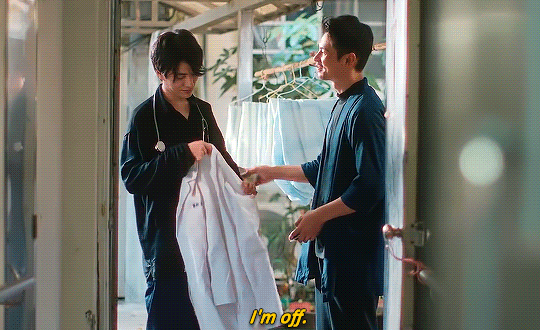
Teaching BL literacies is political. When Mainland Chinese government gets dangai productions to change names and relationships of characters (among other things), it is to prevent live-action audience from discovering BL as a genre with it disruptive potential. It is not only character's names and relationships that are changed. There are entire sub-genres of danmei (such as 高干) that got wiped out by censorship.
When a Taiwanese BL not only retains the character names & relationships and shows relatively explicit intimate scenes but also actively promotes BL literacies, it is an act of resistance. Discussion of gong shou, being genre specialty, manages to do so. Interestingly, they are doing it in an adaptation of a novel by Priest who has a particular reputation with self-censorship. That scene is not part of the source novel.
Heterosexual & gong shou
Association of bottom with the feminine (female or otherwise) has its roots in medicalization (and pathologization) of homosexuality in the west (such as through theories by scientists and doctors like Richard von Krafft-Ebing). This “knowledge” subsequently spread across the globe and was adopted to varying degrees and forms.
Moreover, the terms gong and shou applies to heterosexual pairing too.
BG (boy girl) ships have male gong and female shou
GB (girl boy) ships have female gong and male shou. [If this is interesting unfamiliar territory, check out the series Dong Lan Xue (2023).]

Moreover, if one is willing to look beyond LGBTQIA+ form of queerness (which is born and brought up in America), one can see other queer possibilities. For example, Kothi-Panthi queerness in South Asia which is characterized by explicit presentation of top bottom dynamics. There are very many similar forms of queerness in other parts of Global South.
In many cultures, sexuality doesn’t inform identity but sexual preference does. That’s why is you are to ask a kothi-panthi couple which one of you is the bottom, the kothi would tell you without hesitation: “I am.” Might even asked you in turn, “Couldn’t you tell?” For them, sexual preference (being kothi) rather than sexual orientation takes center stage. This is the inverse of how LGBTQIA+ form of queerness looks at it. While LGBTQIA+ model of queerness focuses on sexual orientation (being pan, ace, gay, etc.) as something that can be freely discussed but sexual preference (top, bottom, versatile, side, etc.) is considered private.
*Just to be clear, “kothi” is a term of self-identification. It means that the person is a bottom. Panthi is not self-identification. That’s how kothi address the men who top them.
While thanks to westernization LGBTQIA+ form of queerness enjoys more visibility, I think it is better to consider it as one type of queerness rather than the only model of queerness. Gong shou dynamics doesn’t fit into LGBTQIA+ form of queerness because it comes from another, much-older nanshoku model of queerness that made its way into Japan from China, hundreds of years ago.
Friction between different models of queerness is common where ever they interact. In 1970s, Japan was witness to public debates between a younger, westernized Japanese queer activist Itō Satoru and other Japanese queer activists such as Fushimi Noriaki and Tōgō Ken who were rooted in indigenous tradition of male-male sexuality.
[Itō Satoru’s] insistence on the necessity of adopting western models of gay identity and coming out have brought him into conflict with other activists such as Fushimi Noriaki and veteran campaigner Tōgō Ken.
Interpretation and Orientalism: Outing Japan's Sexual Minorities to the English-Speaking World by Mark McLelland
Clarification
[Edited. Thank you @wen-kexing-apologist for contributing to the conversation.]
Under the LGBTQ+ model of queerness, it maybe considered inappropriate to have conversation about “top” “bottom”, especially in the office, going as far as to ask that to Qian ge. From that perspective, the BL audience (especially those who are unfamiliar with the terms gong and shou) are fair in their assessment of that scene being out of place or outright offensive.
I think things might have been a bit different if the subtitles retained the terms gong shou instead of “top” “bottom” since they aren’t exactly the same thing. That would have had the desired effect (of introducing BL literacies - gong shou in the context of 强强 (strong gong x strong shou) pairing) without unintended consequence.
What is considered rude under the LGBTQ+ framework is an essential part of fu culture. It is like addressing Wei Qian as just Qian – that could be considered rude in the original language but pretty normal in English. Different cultures, different norms, so to speak. It is only polite to be mindful of the cultural differences and avoid discussing about sexual preference where it is considered inappropriate.
As for the normalization of fu culture (especially discussions of gong shou), in my opinion the didactic scope of Unknown is undermined by the very fact that it is primarily a gǔkē danmei (via adoption (收养)) with tongyangxi vibes (highlighted multiple times by San Pang in the novel) associated with Wei ZhiYuan.
Somehow fu-culture gets judged by those who consume products of that culture. Everyone is happy with fu-cultural products as long as fu-people don't discuss who is gong and who is shou.
Why are fu-culture and BL always judged based on a culturally alien lgbtq+ form of queerness? Why must BL be arm-twisted to fit into norms of lgbtq+ form of queerness just because that is the most mainstream form of queerness?
-
That’s not much a conclusion but this is already so long. I really hope it gives you something to think about.
If you are interested, here's more.
#boys love#danmei#taiwanese bl#bl meta#bl history#bl analysis#unknown the series#unknown the series analysis#unknown the series meta#unknown#priest novels#unknown bl#unknown series#unknown the series spoilers#taiwanese series#taiwanese drama#chinese bl#chinese queer culture#danmei tropes#danmei novels#bl tropes#bl trivia#bl taiwan#unknown bl meta#unknown bl analysis#bl critique#bl novel#bl drama#yuan x qian#zhiyuan x qian
141 notes
·
View notes
Photo
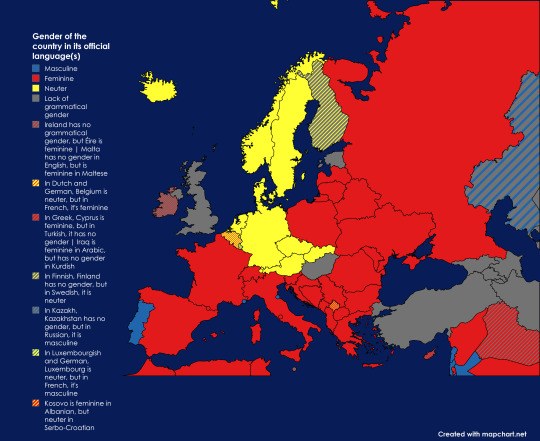
Gender of every European (and neighbouring) country in their official languages.
Notes:
* This map includes **only the official languages for each country.** Regional languages are not counted, but like in my other maps, you are more than free to say whatever is missing!
* According to Wiktionary, Lebanon can be both masculine and feminine in Arabic, but is typically masculine.
* Dependent territories are not included; the British ones all lack a grammatical gender, while the Faroe Islands' gender in Faroese is feminine, and in Danish it's neuter.
* Rememeber, you are allowed to point out any mistakes on the map and help me see what I did wrong! But remember, you don't need to act rude because of an error.
by danielogiPL
111 notes
·
View notes
Note
Sam, what search engine do you use? Recently I have decided to stop using Google, due to privacy concerns and the honestly terrible forced answers to regular search terms… for 99% of my searches, I want a catalog of results that allows me to become informed.
Any suggestions on search engines for doing proper long tail keyword searching these days?
Honestly, when I use one at all, I still use Google. I've given up on expecting privacy or the idea that it's effective to try and ensure it on a personal level -- it needs legislation at this point. People say it's gotten measurably shittier but I haven't really noticed a drop in quality, which is not to Google's credit since it's never actually been great. It is, however, convenient and generally gives me what I want. Perhaps part of it is I grew up without it so when search engines started to be a thing I was like, already prepared with critical thinking skills to weed out the trash. Just because I haven't noticed a drop in quality because I've always ignored the increasingly numerous sponsored/garbage results doesn't mean it hasn't happened.
I don't actually use search engines at all that often -- in my work, I'm using databases or specific sites, and in my personal life I usually know a specific site I'd consult first (ie, Serious Eats for recipes, Wiktionary for language research, Jstor or NIH for scholarship, etc). So I mostly use Google these days as an index -- finding a specific page on a site other than Google that I'm already aware of.
I believe a lot of people recommend duckduckgo, mainly because the privacy function is so much stronger, but I can't speak to its robustness in terms of giving you what you're looking for.
Readership, feel free to chime in with whatever you're using and why! Remember to comment or reblog, as I don't post asks sent in response to other asks.
93 notes
·
View notes
Note
Is there something up with the High Valyrian wiki?
https://wiki.languageinvention.com/index.php?title=High_Valyrian_language
I've had this link bookmarked since ages. I can't seem to load the page. I've tried all sorts of browsers and it is still not working. i wanted to get back into actively learning HV again and duolingo is kinda annoying so. Is there a different page/resource the wiki has moved on to? I also seem to recall an old forum for HV with a bunch of really good resources for it. is it possible for you to provide a link? Thanks so much anyway!!
Good question! This wiki, which you can find here..
...is a labor of love—not just from me, but from a team of dedicated individuals who want to get information about my languages up somewhere more or less permanent, editable by many, and all in one place.
For years I have had a hosting plan from DreamHost. For a fixed fee, DreamHost allows you, essentially, infinite storage. I've got a dozen or so websites hosted by the same DreamHost account. I have to pay for the urls (a yearly fee; everyone pays these), but the hosting itself is covered, no matter if I had one website or a hundred.
Creating a wiki that would function like Wiktionary was my idea. I love Wiktionary, and love the idea behind it. For example, let's say you wanted to look up mate. This is an English word. It's also a subjunctive form of matar "to kill" in Spanish. It's also the word for "saliva" in Swahili. It's also "dead" in Tahitian. It's also a word in several other languages. It's kind of cool to take an abstract form—going just by spelling—and seeing that it's a word in a bunch of different languages, all with different etymologies (some related, of course. For example, mate has something to do with death in a lot of Oceanic languages. In Hawaiian it's make, which looks like an entirely different English word!).
In Dothraki, the word tor is the number four. It comes from Proto-Plains *tur (and so would be tur in Lhazareen). It's also the word for "tower" in Hen Linge (this is one of the words coined by Andrzej Sapkowski, not created by me). In Noalath, from The Shannara Chronicles, it's the word for "wolf", and in Shiväisith, the language I created for the Dark Elves from Thor: The Dark World, it's the word for "sword". While it's true I didn't create the Hen Linge word, I created the others, so you can see it's a form I'm fond of, where the shape is possible.
Anyway, that's kind of cool! And that was the point of the site.
As it happens, the High Valyrian section of the site is…massive. To give you an idea, at the moment, the wiki has over 220,000 pages. Most of those are High Valyrian pages. This is because there's a dedicated team for High Valyrian that has added pages for every single noun, adjective, and verb inflection for every existing word on the wiki. To give you an idea, every verb of High Valyrian has around 200 forms (ipradagon "to eat", ipradan "I eat", ipradā "you eat", ipradas "s/he/it eats", etc.). Every single form for every single verb has its own page. This was accomplished primarily with a program that populated the inflectional pages, but however they got there, they're there.
Certain things on the wiki are templates that need to go through and "check" every single page. Additionally, a webcrawler goes through and checks every single page on the wiki. This requires a lot of RAM. As a result, periodically, the entire website just...shuts down.
Obviously this is not cool. I asked DreamHost about it, and though we have infinite space, we don't have infinite RAM. The first step was to disable all web crawlers. You know about SEO, and how you can do things to increase the page rank of your site? Well, we needed to do the opposite. We needed to make the site disappear from the net, effectively. And we did. This is why even if you type "David J. Peterson wiki language invention" into Google you get nothing. It's like we don't exist. We're there, but you have to know we're there and go to the site specifically. That helped, but our own programs still shut things down.
The second step was to get a private server (technically a virtual private server) for the site. This cost me an extra $25 a month ($300 a year) from what I was already paying. This definitely helped, but sometimes things get to be a bit too much, and so the site still shuts down. This is what you experienced.
You know how Wikipedia begs you for money every year? It's because of this. It's one thing to create an awesome resource; it's another thing for people to actually use it.
Hosting already costs me about $250 every two years, and every year I renew the urls for about 15 websites, which is another $300 a year. If I upgrade the VPS to the next level, it's even more money every year. And that's just me paying it.
Right now, we're in an okay spot. The site shuts down every so often, but most of the time it's more or less stable. Unless I start making a lot more money regulary, that's the way it's going to stay.
So if you go to the site and it's down, I'm very sorry, but it will be back. May take a few days, but it'll come back (as long as I'm alive, anyway).
49 notes
·
View notes
Note
Yo I'm new to 2hu what's the relation between Cirno and the number 9
So the manual for Phantasmagoria of Flower View (coincidentally, the 9th mainline Touhou game) has this page showing a diagram of PoFV with gameplay elements labeled
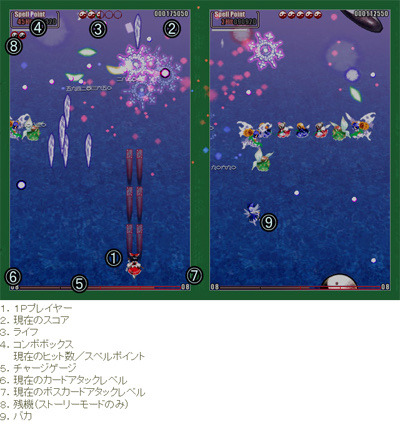
The labels read
1. Player 1
2. Score
3. Life
4. Combo box
and so on.
However, at the end it humorously says
9. Idiot
Because the diagram shows Cirno labeled with a ⑨, 9 and ⑨ (read as marukyuu/kyuu in Japanese and nineball/nine in English) became Cirno’s symbol and so has the title “baka” or “moron.” So now we celebrate her stupidity every 9/9.
This has become so intrinsically linked with her character, that Wiktionary even links the etymology for ⑨ with her
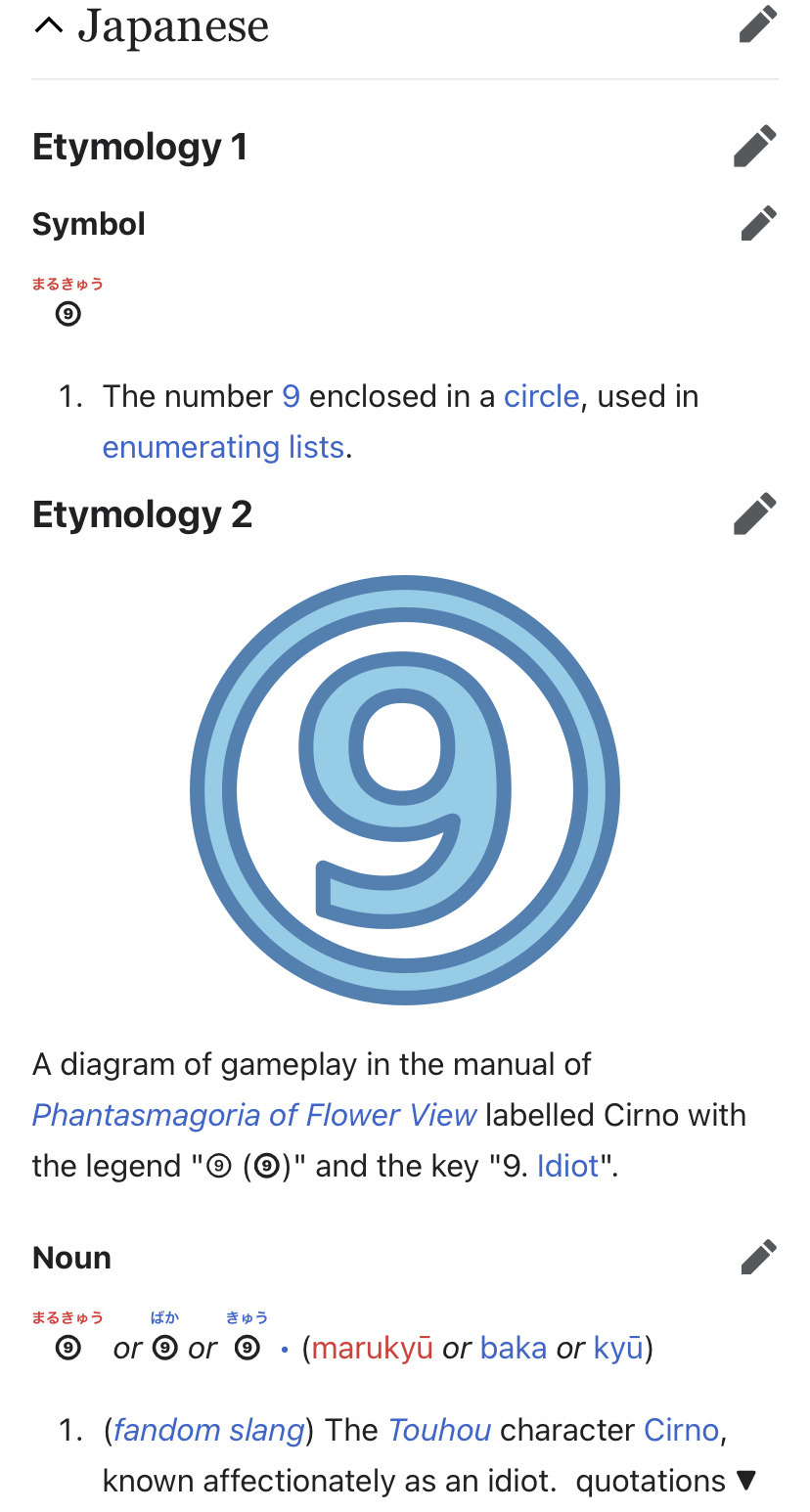
They even use a picture of ⑨ that’s colored like Cirno.
223 notes
·
View notes
Text
Analysis of shipping: Found family and pseudo-incest?
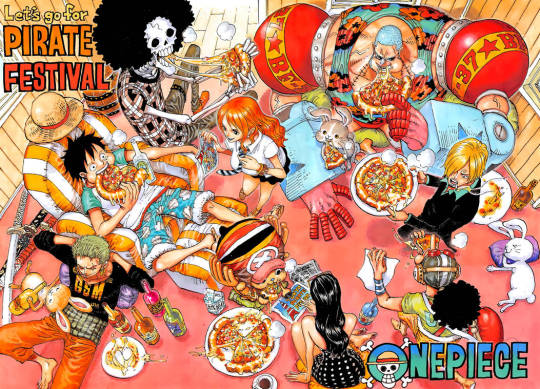
Last year I was requested this rebuttal to detractors, but it took a long time to make because it was hard to pinpoint where these arguments came from
But, after one perceptive individual nailed it right on the head, I finally had something to work with
So, let's start with the argument: "These characters can't end up together because they're like family/siblings, so that would be incest"
This isn't unique to one single fandom. Antis had used this reasoning against NaLu and similar pairings in the past, based on the fact Natsu and Lucy belonged to the same guild, a community that treated its members as "family"
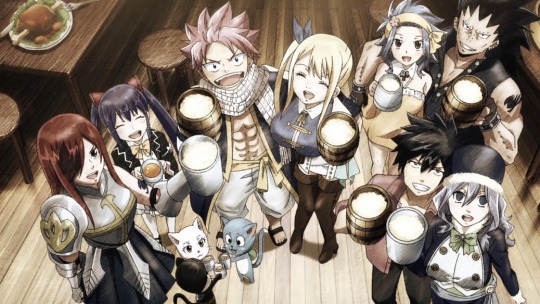
Needless to say, they stopped using it after seeing how Mashima made pairings like Gajeel and Levy, or Gray and Juvia, pretty much canon. Making it clear that romantic relationships between members of this particular circle or community were perfectly fine (That doesn't mean cheating is fine though!).
But, this argument still persists in other fandoms. One Piece is not the exception, where the anti-LuNa crowd constantly tries to paint all romantic potential between Luffy and Nami as "incest" because they're "siblings."
Let us address something first, what's incest?
"Sexual intercourse between persons so closely related that they are forbidden by law to marry"
- Merriam-Webster, 2024
"Marriage or sexual intercourse with a relative within the prohibited degree of consanguinity. In other words, incest is sexual contact between close blood relatives"
- LII / Legal Information Institute, 2024
After 1000+ chapters worth of story, nothing implies Luffy and Nami are related by blood. So, where does the argument comes from?
In reality, antis are using a concept people don't often hear about: pseudo-incest
It's not a widely known term, in fact, it's not even in the Oxford English Dictionary (OEA), the Cambridge Dictionary, or Merriam-Webster.
However, we can still find some defintions that helps us to understad what do LuNa detractors mean with this?
"Sexual involvement between family members who are not blood relations (e.g., siblings by adoption, stepparents and stepchildren, in-laws)."
- Wiktionary, 2024
Once, again we hit another wall, since Luffy wasn't adopted by Nami's family, nor Nami was adopted into his. So, why do antis claim they're "like" siblings?
Let's go from the minor statement to the big one. The first argument is that "The have a sibling-like dynamic"
This is one is odd, because it can come from actual unawareness about the nature of relationships, or the malicious use of the common traits seen in all sorts of human connections
After all, all healthy relationships, either being with relatives, companions, or potential romantic partners, are defined by affection, shared values, support, and sometimes a little bit of discord and/or conflict
If we were to use these traits to label the connection between two characters as that of "siblings," we could describe a lot of official pairings (and potent relationships) from a huge lot of stories as "siblings" instead of lovers/spouses.
Let's use a potent relationship as example: Sabo and Koala feel affection for one another, share similar values, support each other, and may have an argument from time to time...

...does that make them "siblings"? What about Ace and Isuka? Does the combination of affection, support, and occasional conflict rule out any possibility of a relationship upgrade?
If we apply this "measurement" to official pairings from other series, we're likely to jump to similarly flawed conclusions about their relationships.
However, even if there are similarites, there are several differences. For bonds outside our family circle. we may see chosen affinity, sometimes a greater attachment and/or emotional codependecy, a strong passion, and even a deeper sense of compromise coming from the willing choice of those involved.

Potent relationships have all of this, even if they're yet to become canon. And due to their emotional chemistry, LuNa seems more like a deep companionship with the potential to evolve rather than a sibling-like bond
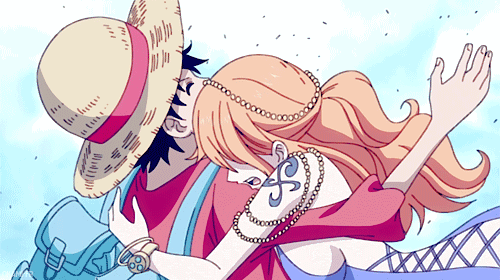
However, that was just the minor statement from western fans. We may deduce some say this because they can't picture a romantic relationship without one (or both characters) being a total simp; perhaps they're so used to the "loveable perv" trope, that their idea of romance relies how horny the characters act with one another; or maybe they just too enamored with the cool good-looking buff guy to acknowledge anything deep, but I digress...
Still, we're yet to address the elephant in the room, the bigger argument, which is a combination of two things:
Just like some anti-NaLu fans did ages ago, a lot of anti-LuNa fans take their "sibling" argument from the same place every other permutation of this reasoning came from, a misuse of another concept: Family of choice
Family of choice, Chosen Family or Found Family, all refer to a group of people who willingly stick together to provide each other with the sense of community and belonging, as well as a feeling of affection, joy and security inherent to a functional family, without being related by blood.
It's seen as an alternative to those who faced rejection from their biological family, or society itself, and even to people who lost their relatives to tragedies or disasters.
It's a useful literary device to develop characters due to how flexible it is, given that members of these groups don't need to fill particular roles for their relationships to work, which provides authors with a lot of freedom in terms of writing.
However, some detractors have been abusing the "family" part of the term to argue against pairings that have enough development and history together for a natural relationship upgrade. How?
By limiting each character to a specific role: Father, Mother, Sibling, etc.
This allows them to claim, that characters within "Found Families" cannot become couple because that would be pseudo-incest.
As some people already noticed, this makes no sense; it replaces the versatility of the trope with a far more rigid, static, and limited form of narrative; and goes against what the idea of "Found Family" was supposed to be, which is an alternative to "family," not a carbon copy of the traditional family structure.
So, how does this argument survives logic and reason?
Well, here's the elephant in the room: in the SBS Volume 48, Oda was asked the question: "If the Straw Hats really were an actual family, who would be the dad, and who would be the mom?"
The following was Oda's answer:
Dad: Franky (Thug)
Mom: Robin
First Son: Zoro
Second Son: Sanji (Punk)
Daughter: Nami
Third Son: Usopp
Fourth Son: Luffy
Youngest: Chopper
In the SBS Volume 50, Oda added Brook would be the "Grandfather" "If you Likened the Crew to Family".
Here we have another example of a quote taken out of context, because the question was 'if they really were an actual family', and Oda later framed his answer as "Position in the crew if they were a family."
It was never about the strawhats being "an actual family," it was merely mindless fun with a "what if." To drive that point home, Sanji still gets horny for both Nami and Robin, yet nobody in their right mind would accuse him of lusting after his "sister" and "mother," because they're not actual relatives.
And this leads us to a couple of plot twists: all of this started because of the song "Family" performed by the strawhats seiyuus which, while invoking the "Found Family" trope, includes the following statement:
"We're not relatives… we're not even siblings!" (親戚じゃなくて 兄弟じゃない)
Which pretty much kills the "they're like siblings" argument used by detractors to liken LuNa to pseudo-incest.
The second plot twist comes from the SBS Volume 99, Oda says that if the cew was an actual family Jinbei would be the "father," replacing Franky who would now be given the position of "pervy granny"
This proves two things. First, that such "positions" are neither "fixed" or "absolute," they're malleable and can be changed or altered at any given moment.
Second, that this "Family" thing amounts to a mere joke, it's just a silly little game with no real impact on the story and characters. Although the idea of Frobin Vs. Jinbin(?) sounds amusing, but I digress.
So, what's the conclusion?
Even if the strawhats are an example of "Family of choice," that doesn't make the greatest potential relationship upgrade within the crew problematic, it all depends on how the author handles the situation. And given Oda is a top tier writer, we got nothing to worry if he decides to pull the trigger
And, despite what huge players within the community said before, Oda never claimed the strawhats were "an actual family." So any accusation of pseudo-incest, whether subtle or direct, is just the result of general ignorance, misinformation, and/or personal agendas
BONUS
There are times in manga/anime when one character refers to another as brother/sister/sibling, despite not being related.
One example would be Winry from Fullmetal Alchemist, who claimed Edward is like a "brother" to her. However, given that they're not related, nothing stopped them from falling in love, ending up together, and having children...
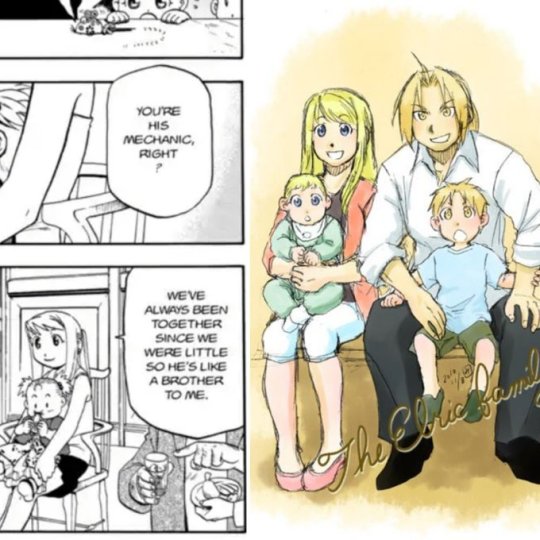
If we rely on the same reasoning used by antis, we could conclude this relationship is problematic. However, even if they have some moments when Winry goes ballistic on Ed...

...nobody in their right mind would dare to say their relationship is akin to pseudo-incest.
Oddly enough, we have a case in One Piece, when one character (Kinemon) made a similar brother/sibling claim to Tsuru, using a similar reasoning to that of Winry's...
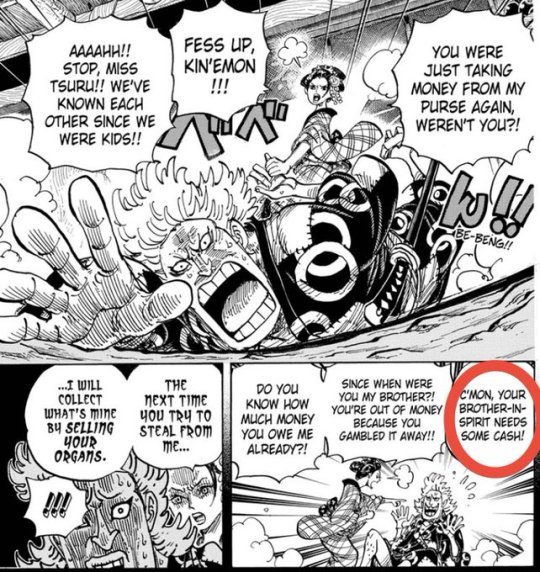
I'll give you three guesses on how these two ended up, the first two don't count
#one piece#fairy tail#fullmetal alchemist#analysis of shipping#analysis#found family#family of choice#debunking myths#ルナミ
61 notes
·
View notes
Text
When you don't recognize a familiar character
Due to different fonts, styles, and variants, sometimes it's hard to recognize a character that you thought you knew well. I collected 3 examples that I've personally encountered online. Let's take a look~
Below, the character in the blue bubble shows what I'm used to seeing.
令 lìng
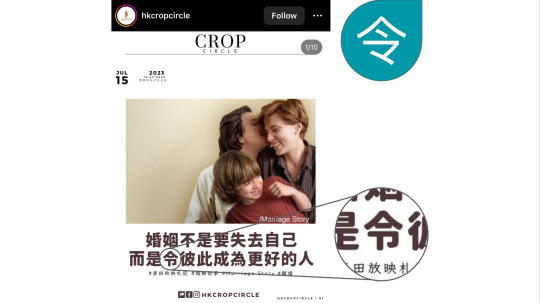
If you look at Wiktionary, you will see that there are a few different styles/versions of the character 令. For instance, you may see the top with a 丶 (点, the dot stroke) or a longer, flat line. But what really threw me off here was the bottom half, which looks quite different here from what I am used to.
灰 huī
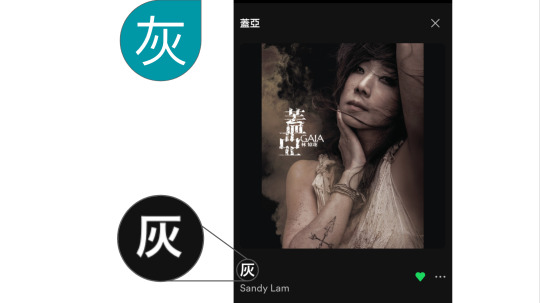
I was so confused by the name of this Sandy Lam song on Spotify. I drew it in Pleco, but I didn't get any matches. I thought maybe it was 灭 miè. Eventually I looked up the album tracklist and learned it's 灰. Wiktionary seems to say this is the Japanese variant of 灰, but I think it comes down to the font Spotify uses.
真 zhēn

Despite 眞 and 真 looking quite different, I actually didn't have much difficulty reading 眞 due to context. MDBG lists it as a variant of 真. This video was on Instagram, but I think it's reposted from 抖音 (Douyin). I see 眞 on a lot of 抖音 reposts, so I assume it's due to the font used on 抖音.
#my learning#nerdy language stuff#chinese#mandarin#mandarin chinese#chinese language#studyblr#langblr#learning languages#language learning#chinese langblr#mandarin langblr#languageblr#chinese characters#hanzi
102 notes
·
View notes